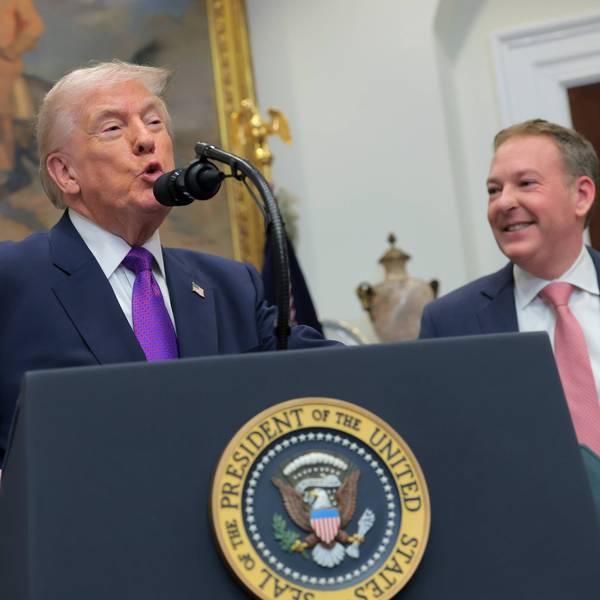In an "unprecedented" move that critics say will "undermine independent science," amplify the voices of those representing the fossil fuel industry, and put public health at risk, Environmental Protection Agency (EPA) chief Scott Pruitt on Tuesday signed a directive that bars scientists who have received federal grants from serving on the EPA's advisory boards.
"Pruitt doesn't want to listen to a word from anyone who isn't in the pocket of corporate polluters."
--Michael Brune, Sierra Club Justifying the new rule, which will take effect immediately, Pruitt suggested that the research of scientists who have received federal money lacks objectivity and gives off "the appearance of conflict."
But as Andrew Rosenberg, director of the Center for Science and Democracy at the Union of Concerned Scientists (UCS), noted in a statement responding to the directive, Pruitt doesn't apply this same standard to oil industry-funded scientists, whose input he eagerly courts.
"The suggestion that federal research grants would conflict with advisory board work is frankly dishonest," Rosenberg concluded. "Pruitt is turning the idea of 'conflict of interest' on its head--he claims federal research grants should exclude a scientist from an EPA advisory board but industry funding shouldn't."
Sierra Club executive director Michael Brune echoed Rosenberg's critique, arguing that the directive shows "Pruitt doesn't want to listen to a word from anyone who isn't in the pocket of corporate polluters."
If the EPA chief did listen to and act on the advice of those who shun Big Oil cash, he would realize that his "policies are disastrous for the health of our kids and our communities," Brune added.
As Common Dreams reported earlier this month, Pruitt first floated the idea of barring recipients of EPA grants from the agency's advisory boards at an event hosted by the right-wing Heritage Foundation.
"It's all consistent with a hostile takeover of science-based policymaking."
--Michael Halpern, Union of Concerned ScientistsWhile Pruitt didn't unveil the names of appointees to the EPA's Science Advisory Board who will replace scientists receiving agency grants, an unofficial list obtained by the Washington Post includes "several categories of experts--voices from regulated industries, academics and environmental regulators from conservative states, and researchers who have a history of critiquing the science and economics underpinning tighter environmental regulations."
Michael Halpern, program manager of the Center for Science and Democracy at UCS, argued in a blog post Tuesday that while Pruitt's directive is extremely dangerous, it is not at all surprising, given his pro-fossil fuel track record.
"It's all consistent with a hostile takeover of science-based policymaking: those with true conflicts of interest are exerting control over not only staff positions but also the independent entities who are there to provide science advice," Halpern concluded. "Without public protections that are fully informed by independent science, more people will die and get sick, and our quality of life will suffer. We should do all we can--including challenging the new directive in court--to prevent administrator Pruitt from excluding independent scientific advice from the work of the EPA."




